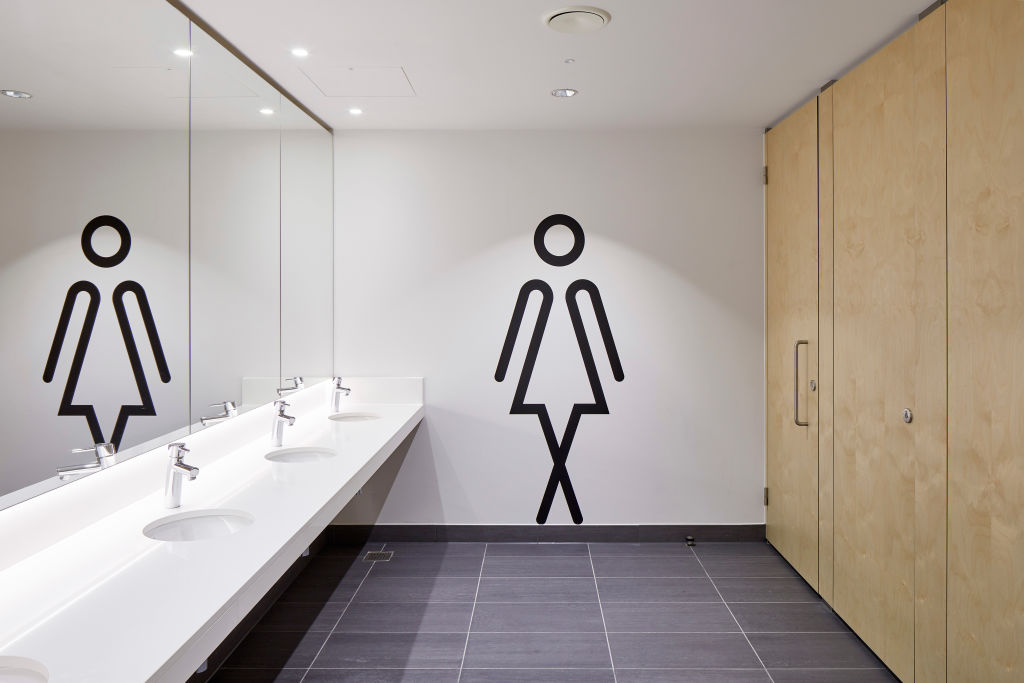Current Delaware state senator Sarah McBride was elected to the U.S. House of Representatives as a Democrat earlier this month, replacing Lisa Blunt Rochester, who moved to the Senate to replace the retiring Tom Carper. McBride is the first known trans person to serve in the U.S. Congress.
The left wing of the trans community was not that enthused by McBride's victory, in part because the representative-elect positioned herself during the campaign as a staunch Israel hawk even as its military continues to inflict apocalyptic conditions on Palestinians in Gaza (including, obviously, our siblings in the queer community). Given her ties to Joe Biden and the aggressively centrist Human Rights Campaign, plenty of trans people (myself included) resisted any framing of McBride's election as groundbreaking. In nearly every respect, she is an extremely typical middle-of-the-road politician.
Because of her transness, however, McBride remains a very visible target for the ongoing Republican campaign to eradicate trans people from public life. After her election, South Carolina Rep. Nancy Mace, in collaboration with House Speaker Mike Johnson, pushed through an explicit ban on trans men using men's restrooms and trans women using women's restrooms at the Capitol Building and House offices. Nobody on the Republican side has clearly articulated how this would be enforced, outside of "We know that Sarah McBride is trans." Mace especially has made a name for herself with this and only this line of attack. She continues to tweet viciously and exclusively about how much trans people scare her.
Back in 2016, North Carolina passed a law that tied bathroom usage to birth certificates. It was met with loud protests that included the cancelations of major concerts in the state and the moving of the 2017 NBA All-Star Game. The damage from the law also helped Democrat Roy Cooper unseat Pat McCrory as governor, and it was ultimately repealed. Despite the clearcut victory for trans people and their allies, there's been no comparable public condemnation of Republicans for the continued and increased fervor of their genital-policing agenda, which has included a whole bunch of similar bathroom bills passed in other states since 2021. If anything, even after Kamala Harris ran the blandest, most down-the-middle campaign imaginable, the loudest voices in the center are talking about how Democrats don't hate trans people enough.
McBride doesn't enter Congress until January, and I think the normal response to a bunch of people freaking out about which bathroom you might use two months from now is "I usually don't plan those things that far in advance." But she preemptively announced her intent to comply with Johnson's new restrictions. Particularly for the trans people who already distrusted her, this appeared a cowardly capitulation. Predictably, McBride's statement has done nothing to slow Mace's attacks, and it's signaled to other Democrats that they can abandon this battle. It also screws over those trans people, less privileged than a Congresswoman, who may find themselves needing to pee while they work inside or visit the Capitol.
The whole policing apparatus codified by the bathroom law is flawed on a practical level. If you were a man who walked into a bathroom and saw Sarah McBride washing her hands at the sink, you'd think you'd walked through the wrong door and turn around. Within the binary gender setup that the vast majority of places use to sort their bathrooms, the best system is to trust everyone to behave themselves until they show otherwise, rather than empower vigilantes to make guesses.
Back to me. I'm trans and use the bathroom like any other woman when I have to pee somewhere out in public, and it's never been a thing, either in New York City, in suburban Michigan where my family lives, or anywhere I've traveled. I think that's partially due to the fact that, contrary to what it looks like on the internet, no cis people are actually thinking about transness basically at all in their everyday lives. It's also because I fit neatly enough, if not seamlessly, in the idealized "women" social category represented by the stick figure on the door. But these laws and the screaming about their necessity still make me anxious that some gender non-conforming feature of mine will catch the eye of a person who'll feel empowered by conservative rhetoric to attack me, verbally or otherwise. If I feel that way, people who fit even less neatly into either of the two boxes we're given—regardless of whether or not they're even trans—have it worse.
Given the implausibility of these laws' effective enforcement, and that Mace has shown no hint of satisfaction at McBride's quick acquiescence, it's fair to conclude that this is not really about bathrooms at all. Rather, it's about trying to reinforce the strictness of two social categories of gender, especially as that dichotomy starts to feel increasingly fragile. These bathroom laws don't protect anyone from trans people but do make life harder for trans people. They're intended to provoke anxiety in their targets—another clumsy punishment aimed at those who Republicans don't like, whose lives aren't pledged in service to fundamentalist Christian ideals. They offer us a pretense of safety from their wrath on the condition that we retreat from our lives. That's what McBride chose. The other choice is to fight.






